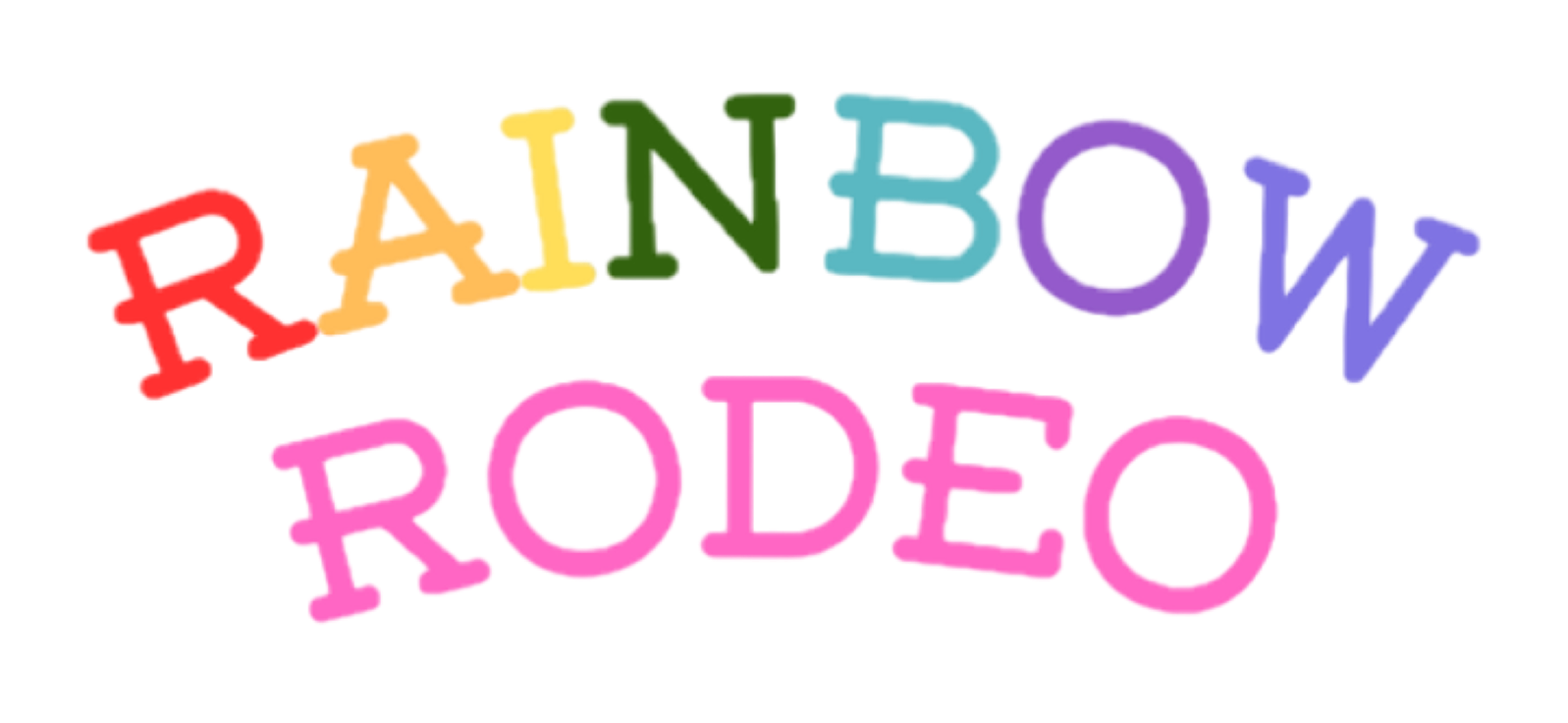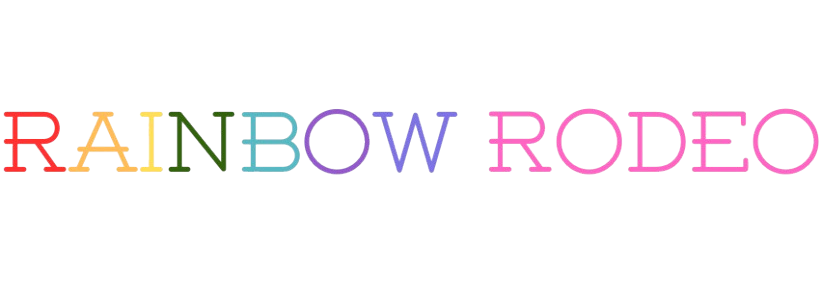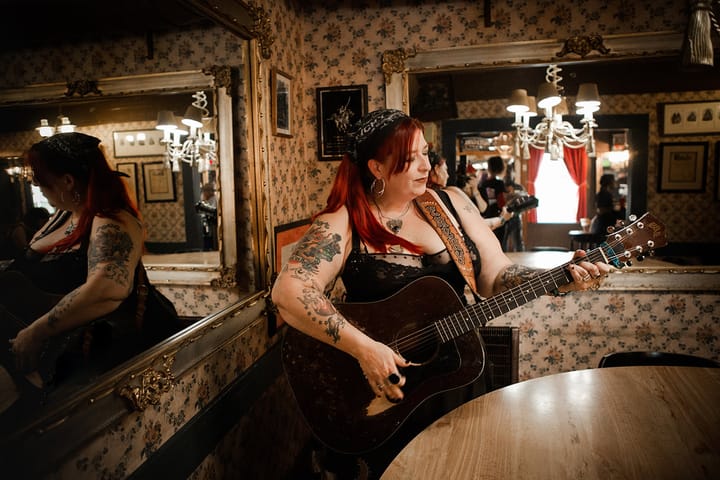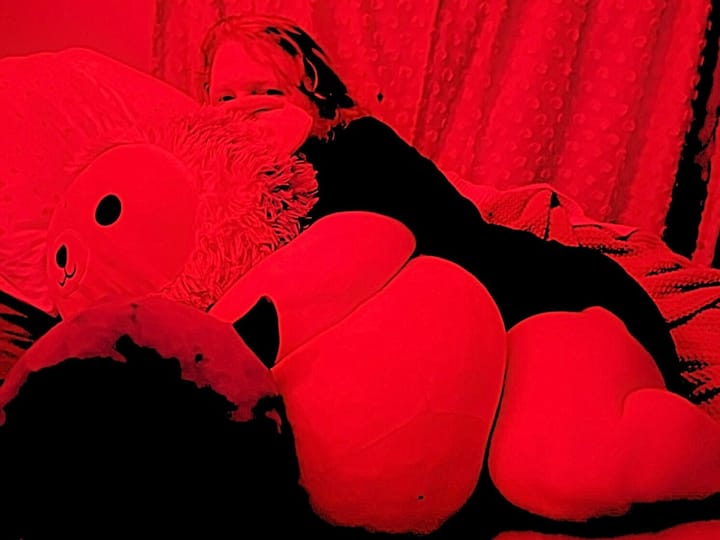Rainbow Roundup 8/18: On Pigeonholes

It seems like every time I go on vacation this summer there is a new embarrassing country music fiasco. Does my presence in New York City protect some kind of cosmic ley line that preserved order in country music??? There is obviously a causal relationship at work here.
With that said, I’ve only got one thing to say about That Man and his song: I knew that his rise was too fast and too coordinated for something organized by Nashville. In point of fact, the “campaign” was organized by an alt-right political firm. Either the firm was testing out their strategy for 2024, or they were looking for something to burnish their resume ahead of the election.
While I can feel some satisfaction in being right, the episode raises a scarier question: what does it mean that the alt-right is officially making itself known in mainstream country music? (As opposed to artists dodging questions about politics.) What does it mean that they see country music as something they want to protect?
Speaking of questions artists like to dodge, let’s talk about choosing to be out as a country artist. I recently set up an interview with an artist whose initial press releases declared this person was an “out and proud member of the queer country community.” This person’s publicist asked to talk to me on the phone and, after beating around the bush for a while, asked that I not discuss the artist’s being queer in the interview. Because, the publicist said, the artists just wants to “focus on the music” and wants to “avoid being pigeonholed.”
Meanwhile, we’ve got Morgan Wade mocking the rumor that she’s dating a Real Housewife of New York by putting out a video of the two of them almost kissing. In the article she sidesteps the question of whether or not she’s queer. For what it’s worth, I found her album to be aggressively straight — not that that means anything. (Also — again with the videos. Sheesh!)
I put out an open call on Twitter to ask artists what being “pigeonholed” means to them. As we’ll hear in an upcoming podcast episode with Maia Sharp, this is certainly a concern for artists. (And Sharp used the exact same term.) It’s not an uncommon sentiment: over the year I’ve heard this from many artists with marginalized identities: “I don’t want to be pigeonholed as gay/Black/etc. I want the music to speak for itself.”
But in a genre that prizes “authenticity” (nope — not gonna discuss That Guy) can you really write about yourself and your feelings without discussing these experiences? And for all the times I’ve spoken with people who are concerned that their identity comes first, I’ve had so many conversations (sometimes with the same person) about the joy they feel when they finally find themselves in community with other insert-identity-here artists. And they feel like their music is better for it.
So what would be so wrong with being “pigeonholed” in queer country? I do not want to dunk on this artist per se, but what, exactly, are the concerns? That being “pigeonholed” as an LGBTQ+ artist means you’ll have a smaller artists? Please — we can barely get Pride festival committees to even hire queer artists. Is the concern that people won’t listen to your music if they know you’re queer? Maybe — but didn’t you just say you want the music to speak for itself?
I asked artists to tell me how they felt and only two artists responded. Cindy Emch of Secret Emchy Society replied:
“I may miss out on a gig or three, but it’s more important to me that queer folks know my shows are welcoming to them and that I’ve got their back. Fuck the closet. I want us all to have the stage,” she wrote. “Also queer femme invisibility is absolutely a thing and it would be letting my people and myself down if I just let folks assume the straight.”
Catherine Backus, formerly of catherine the great, observed: “To me not wanting to be associated with “queer country” has major assimilationist vibes? and queer country at the moment is a helluva lot more interesting than anything mainstream.”
I am perhaps biased in agreeing with the two of them, but I’d love to hear from more people for a real, nuanced view. Clearly there are a number of people who are afraid to be associated with this vibrant community of artists: so where does that fear come from?
Bee Dolores put together a fantastic round table about this in the first issue of Rainbow Rodeo, but things are so different in 2023 than they were two years ago: we’ve seen the success of coordinated political campaigns to erase trans people in public life, increased violence against cis LGBQ+ people, and now an open declaration of white supremacist values in commercial country music.
But I still think that all of the pushback — including astroturfing artists like That Guy — means we’re winning. And I hope anyone who is deciding if they want to be out as an artists sees the community we’ve built and how strong we all are together.
Rainbow Roundup
- My favorite local NYC site Hell Gate interviewed nonbinary country hyperpop singer Hank
- Support disabled artists when you support Rampd
- Are you on BlueSky? I made a feed for LGBTQ+ and BIPOC country music!
- If you’re here, you like music zines. Longtime Wide Open Country contributor Addie Moore is taking pre-orders for their indie punk zine No Spectators
- You can get almost 50% off the book Queer Country using this code: F21UIP
- This thread gives advice on self-managed transition in Alabama and other states that restrict our bodily autonomy
- And here’s a directory of DIY HRT
- Eli Conley is running a queer songwriting circle
Album Releases
8/4 — Julian Talamantez Brolaski (Listen to our conversation on the Rainbow Rodeo podcast)
8/11 — Olive Krug
8/18 — Meltdown Rodeo
8/28 — Bells Larsen
Events
9/21 – 9/23: Amythyst Kiah, Katie Pruitt and many other incredible artists (like some guy named Tyler Childers) are playing the Healing Appalachia festival in Lewisburg, WV
Artist Resources
- Rampd supports disabled artists and music industry professionals
- Are you on BlueSky? Queer country artist Alone at 2 AM created this feed of musician. You can ask them to be added to the feed!
- We Are Moving the Needle is looking for women and non-binary audio engineers and music producers
- Eli Conley is teaching Unlock the Song Inside: Beginning Songwriting Class for Queer & Trans Folks & Allies, and he also offers an online LGBTQ+ songwriter circle!
- Are you on Mastodon or another part of the Fediverse? Get your music on RadioFreeFedi! https://radiofreefedi.net/
- PS — If you’re thinking of joining Mastodon, make an account on musician.social and read my tips for making Mastodon work for you!
- Submit your music and events to The Q LGBTQ Creative Network
- This Twitter thread has a whole list of places to find jobs in the music industry
- And here’s a list of resources for “women” entering the music industry — presumably they also encourage nonbinary participants
- Submit your profile to the Country Everywhere which seeks to unite BIPOC, LGBTQ+, and disabled artists and professionals
- Sign up to the Black Opry Revue’s interest form!
- Check out the weekly Queerfolk Fest show in Nashville




